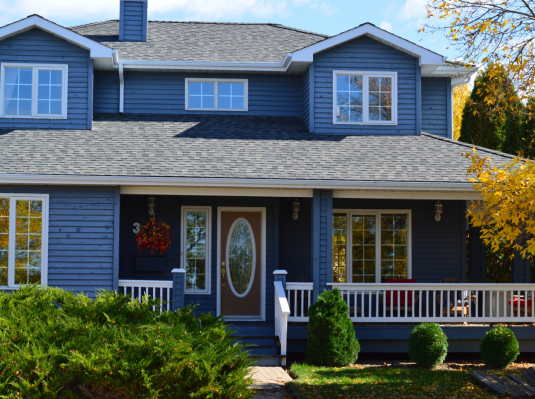
Pets
Your furry best friend can affect your home insurance premium. Certain dog breeds are associated with higher liability risks due to their size or breed-specific behavior traits. Insurers might charge more if you own breeds perceived as aggressive, as they could potentially bite or attack someone, who could then sue or file a claim. Additionally, pets can also cause damage to your property, resulting in a higher premium.
This same idea extends to exotic animals as well. Insurers view animals like parrots, snakes, and potentially harmful insects as a liability risk. As a result, insurers might increase premiums to match the potential for claims—whether for property damage or bites.
Trampolines and Pools
Entertainment features like pools and trampolines are fun, but they're seen as “attractive nuisances” in the insurance world. If you have an in-ground pool, you will likely be asked to install safety measures such as fences and gates to mitigate risks before an insurer can offer coverage. For a trampoline, insurers will want to know that it is properly mounted on the ground and has a safety net surrounding it.
The potential for accidents and injuries is high, and these features add to the amount of personal property covered in your policy. It is also strongly recommended that homeowners with high-liability items like pools and trampolines secure additional coverage with an umbrella insurance policy in the case someone gets injured on your property and sues.
Does My Home Insurance Cover Trampolines?
How Your Pool Affects Your Homeowners Insurance
The Age of Your Roof
An older or worn-out roof isn't just a risk for leaks but also claims. If your roof is more than 20 years old, your insurer might also require an inspection before shelling out a policy and could opt to forego offering coverage at all. Beyond age, the shape of your roof and materials used may also affect your costs due to your roof's ability to protect you against weather-related incidents. A well-maintained or recently replaced roof, particularly one made of resilient materials, could lower your risk profile and your premiums significantly.
Proximity to First Responders
How quickly emergency services can reach your home impacts your home insurance rates. Homes that are rural, far from fire stations, in areas with high traffic volumes, or in areas with less access to fire hydrants can attract higher premiums due to increased risks of damage in case of fires.
Your Marital Status
On the other hand, one factor that can lower your insurance cost is your marital status. Statistically speaking, married couples are less likely to file claims, resulting in more favorable rates.
Operation of a Home Business
Many people don’t realize that they should inform their insurance provider when they decide to run a business out of their home, but not doing so can put you at risk. Running a business from home might require a different type of insurance or policy endorsement that could cover costs of legal claims against the business.
Your homeowner’s policy might provide limited coverage related to your property and liability and raise rates accordingly. It's best to discuss your home business operations with your agent to ensure adequate coverage.
Collectibles and High-value Items
If you're a collector of fine art, jewelry, or other valuables like antique firearms, your home insurance premium might be higher. Insurers often consider the replacement value of these items within the home, leading to increased rates. However, it is smart to arrange separate coverage for your high-value items or add a rider to your policy specifically for these items.
The home insurance landscape is full of variables, many of which are not immediately obvious. As a homeowner, understanding these factors can help you manage or reduce your premiums without compromising coverage.
The best course of action? Discuss your circumstances with your insurance agent to fully understand how your lifestyle choices and the features of your home impact your insurance.
Get a Quote
The contents of this article are for informational purposes only. You should not act or refrain from acting based on this information without first consulting a Goosehead licensed agent at [email protected]. We disclaim all liability for actions taken or not taken by you based on the contents of this article which is provided "as is." Goosehead makes no representation that this content is error-free.


